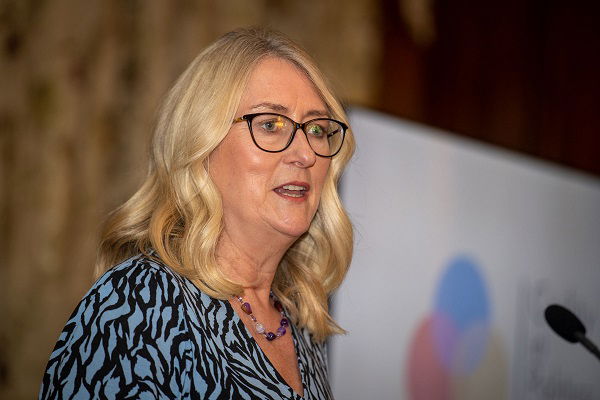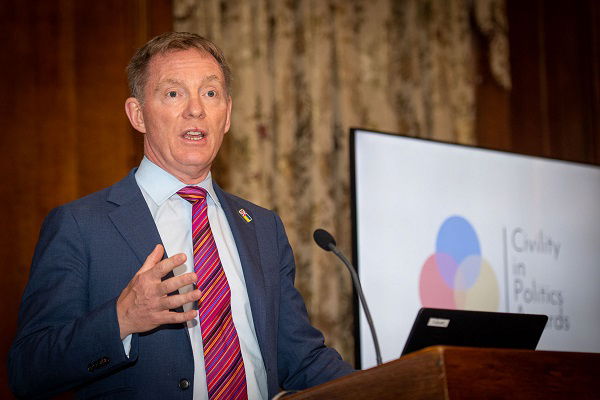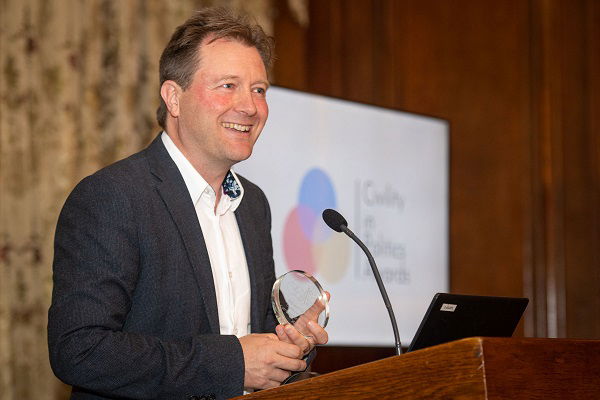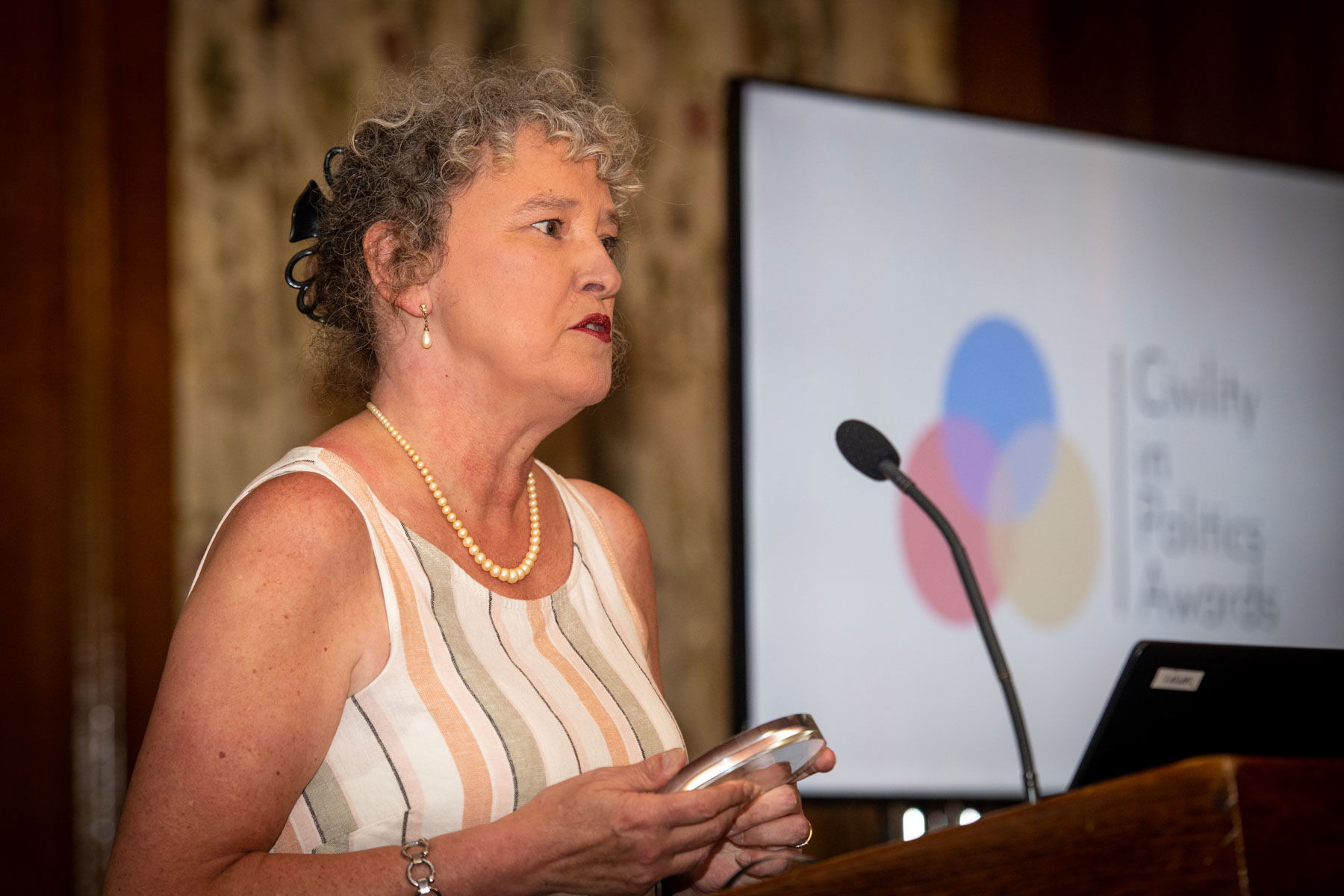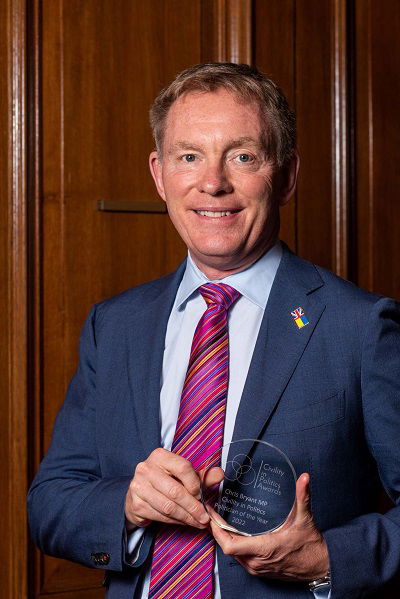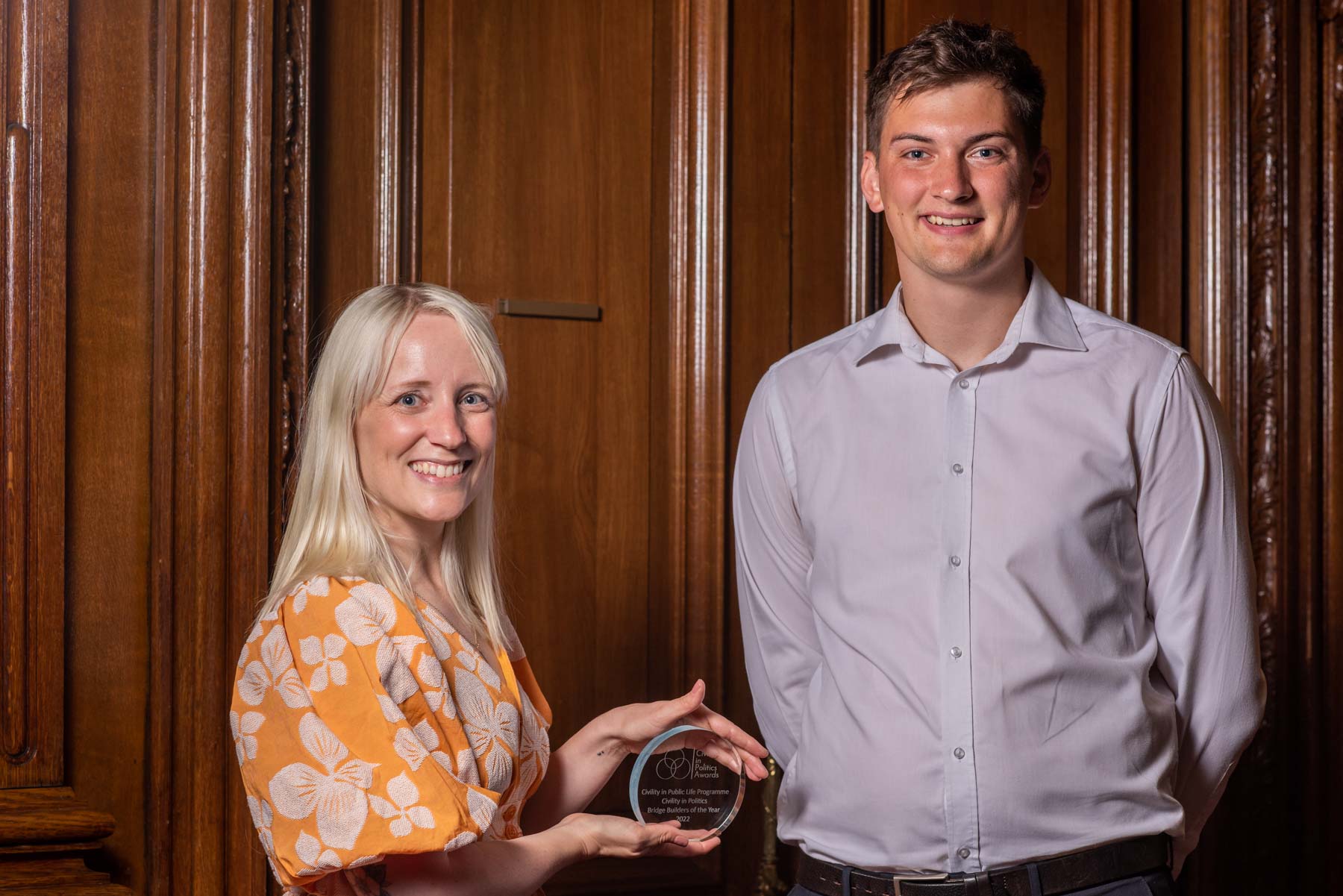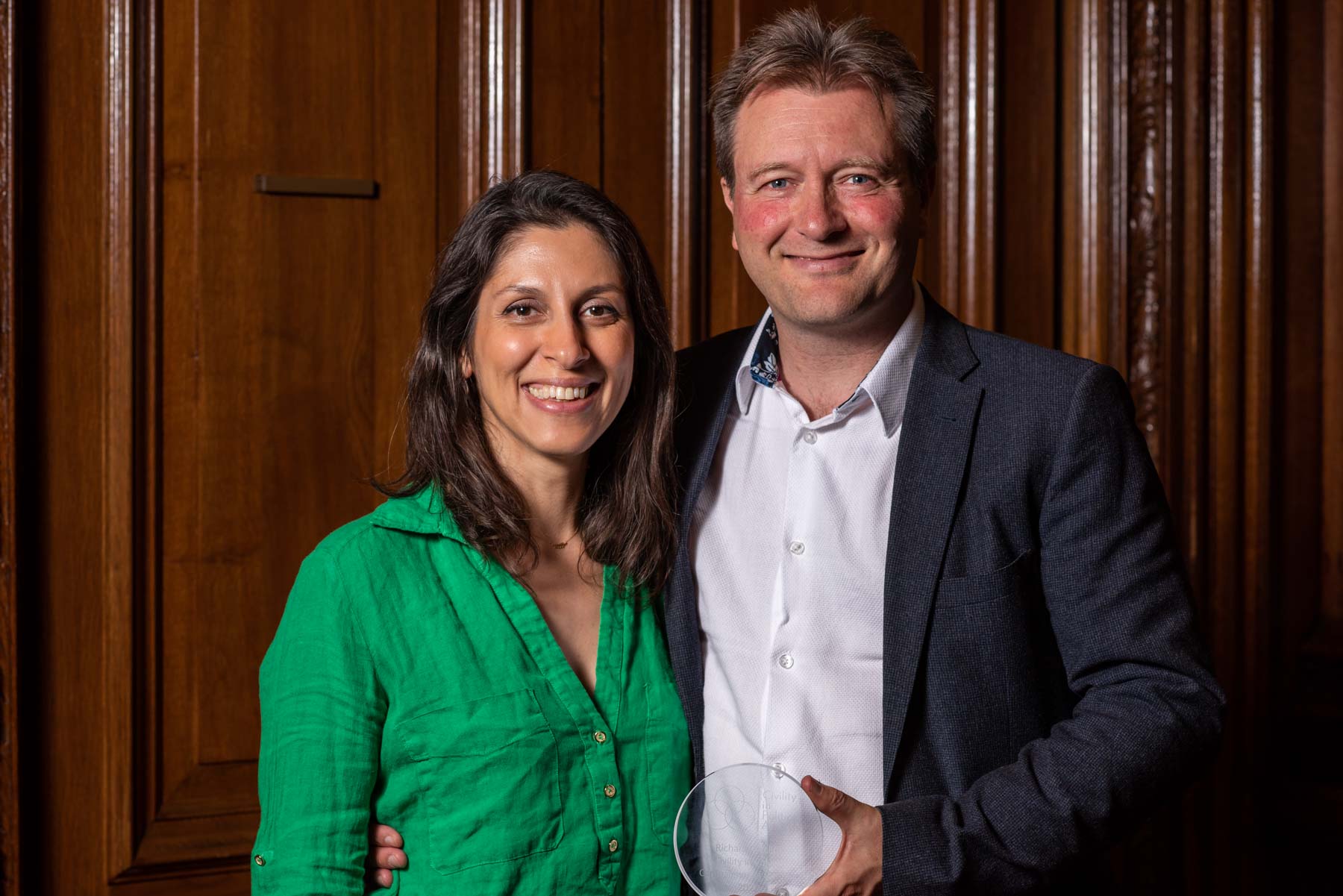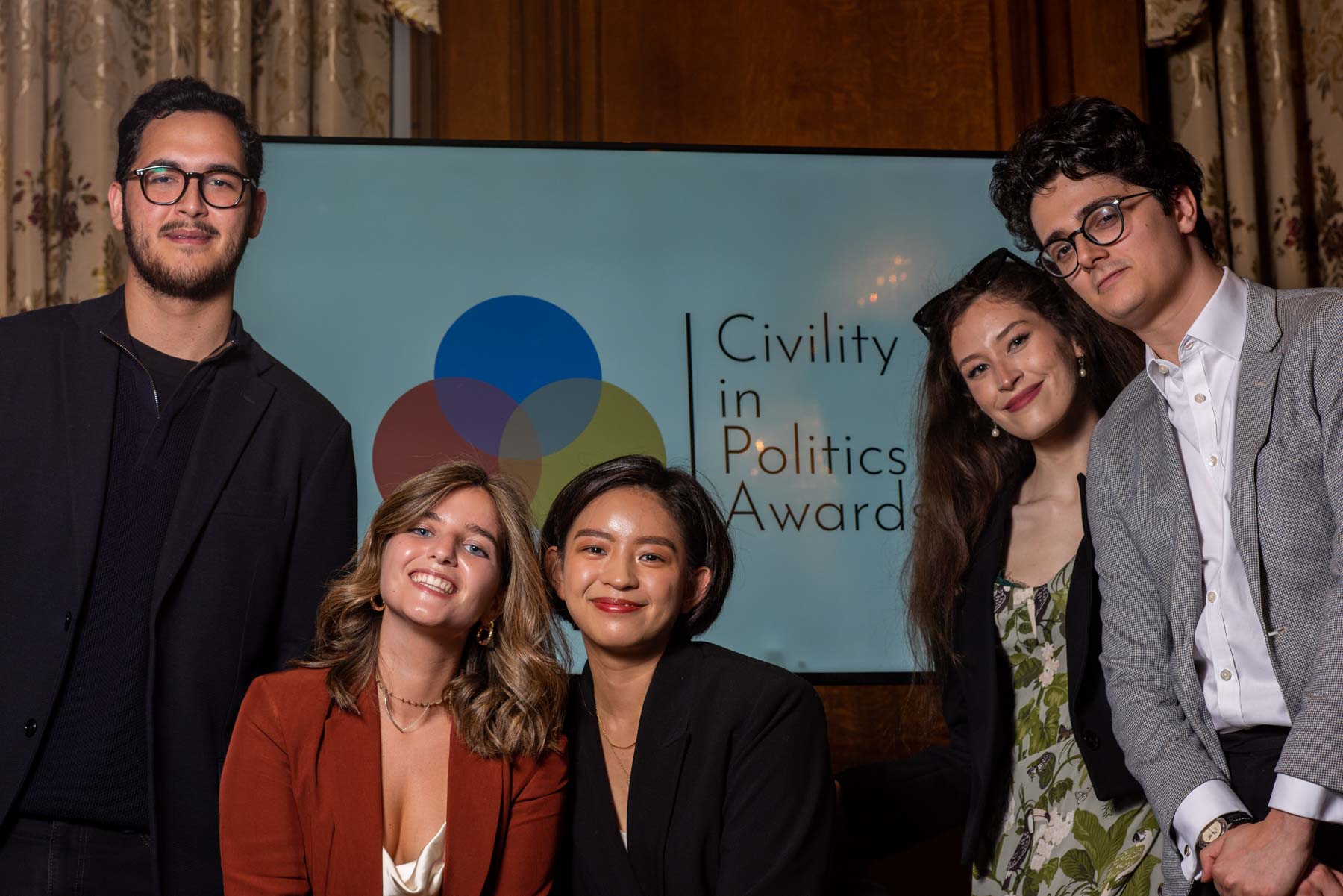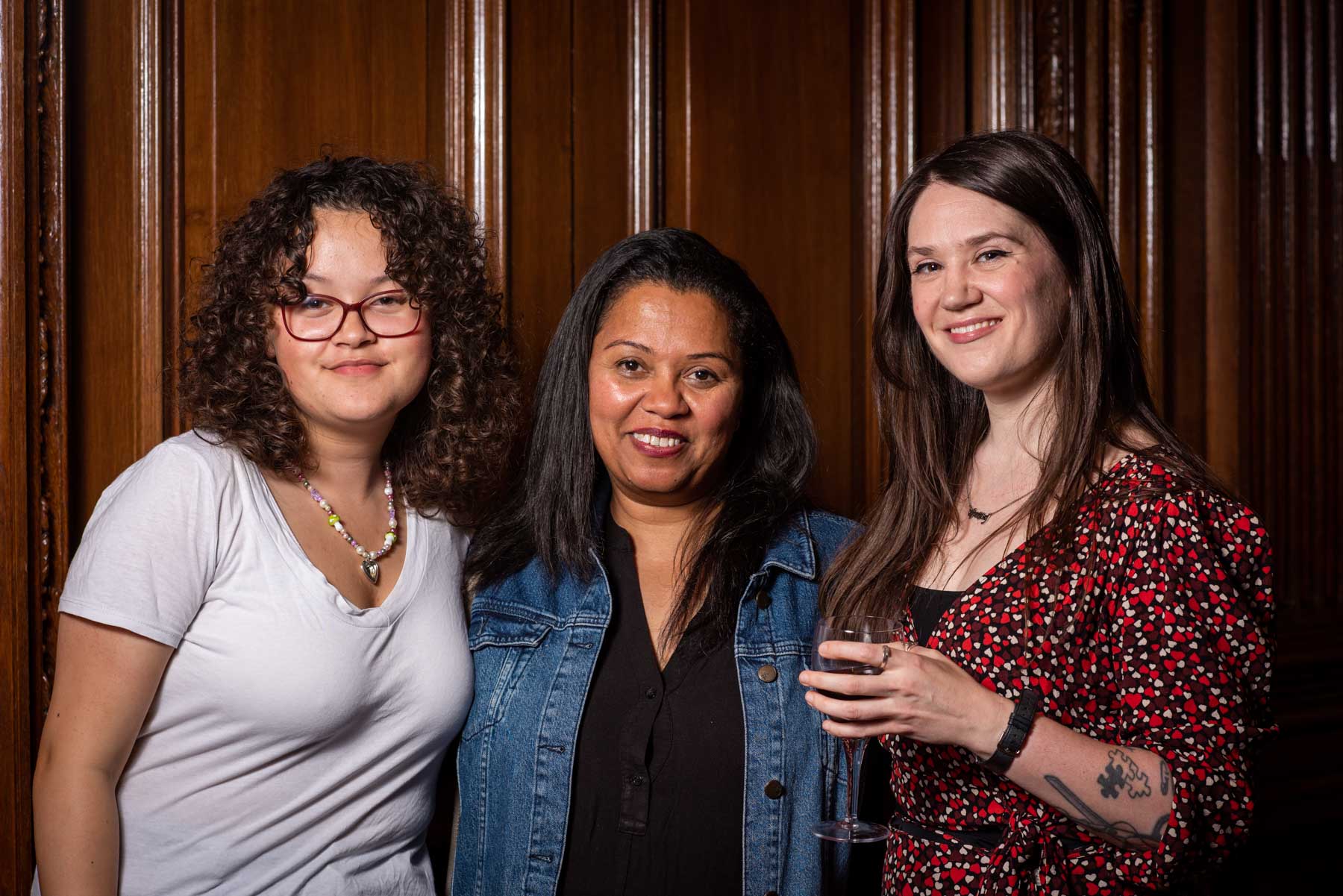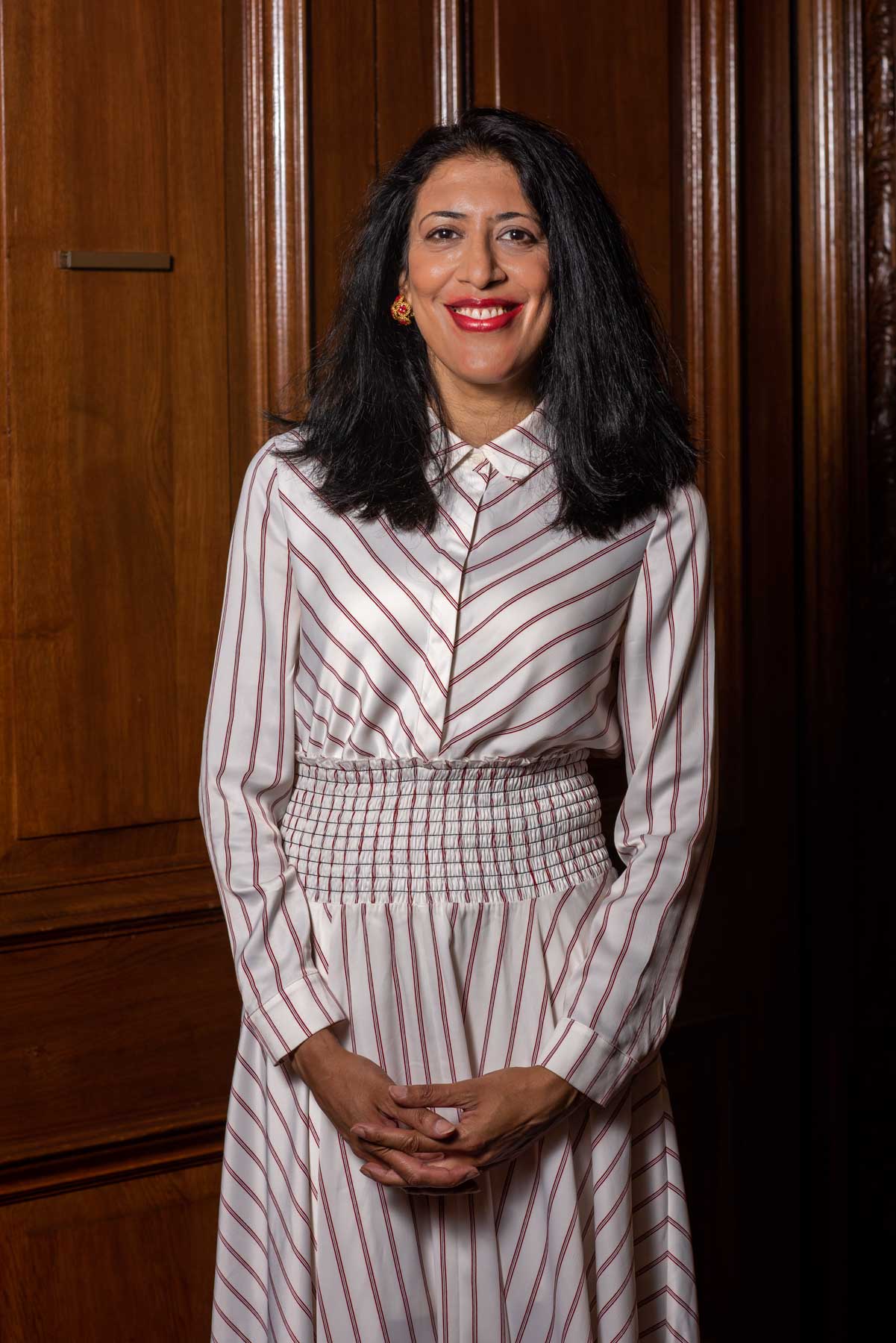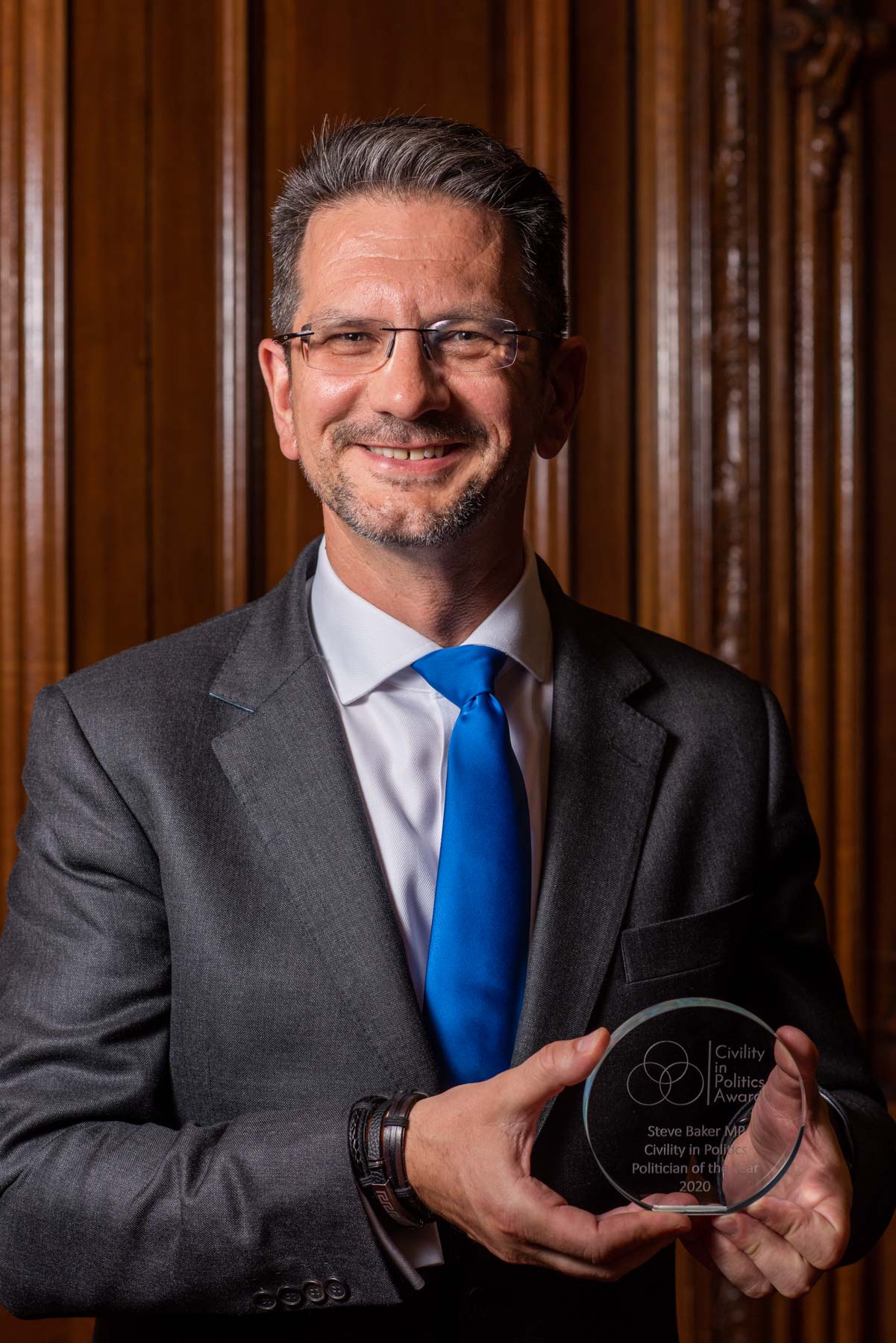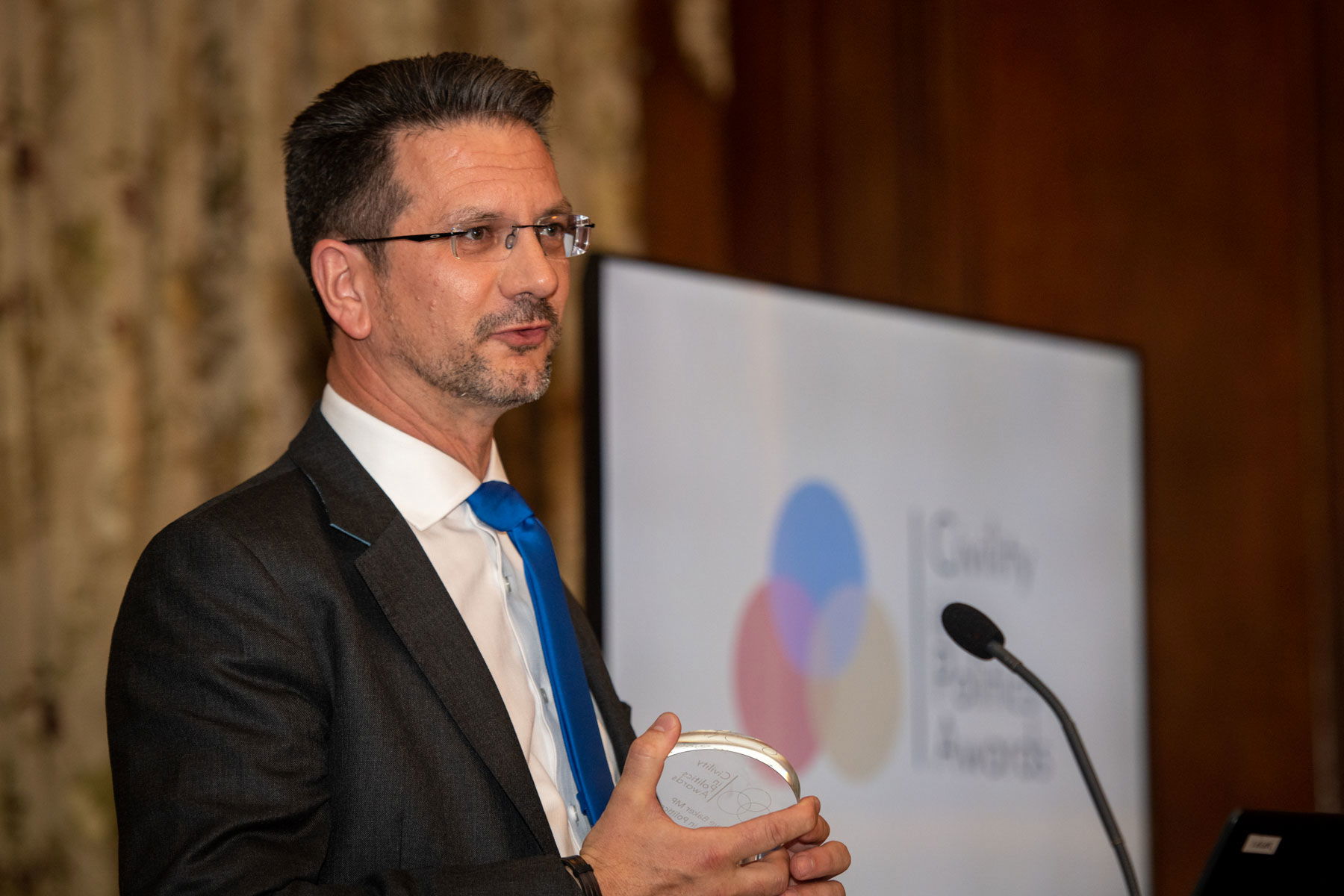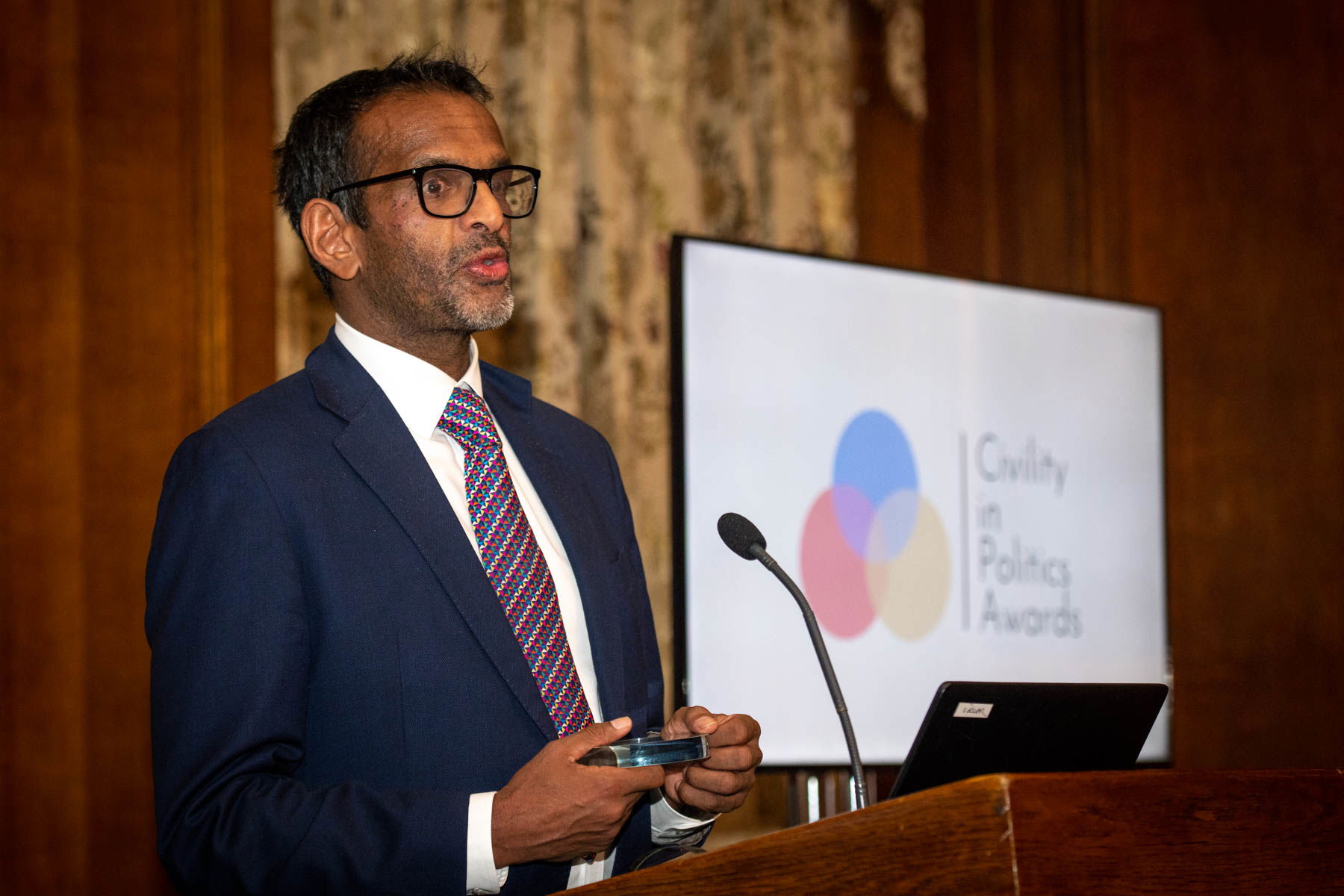celebrating positive politics
News
About



Encouraging, rewarding and celebrating thoughtful, reflective public debate.
30 years ago, George Bush Snr called for a kinder, gentler politics in America. More recently, a British politician from the other end of the spectrum, Jeremy Corbyn, re-used the phrase.
Yet the behaviour of politicians often falls short of this ideal.
Four years of divisive Brexit campaigning has supercharged divisions among both politicians and the public. Many hoped that one effect of COVID-19 might be to unite the country. But there is little sign of it, with disagreements over the Government's handling of the pandemic, notably lockdown and relaxation rules, reinforcing divides.
This febrile political atmosphere, evidenced daily through threats to journalists, MPs and activists, is likely to act as a further disincentive for people to become involved in politics or to vote.
A group of us has come together to encourage, reward and celebrate thoughtful, reflective public debate that reaches across the aisle and seeks to improve our civil discourse.
There are four award categories:
A £3000 prize will be donated to a charity nominated by the winning Politician of the Year.
30 years ago, George Bush Snr called for a kinder, gentler politics in America. More recently, a British politician from the other end of the spectrum, Jeremy Corbyn, re-used the phrase.
Yet the behaviour of politicians often falls short of this ideal.
Four years of divisive Brexit campaigning has supercharged divisions among both politicians and the public. Many hoped that one effect of COVID-19 might be to unite the country. But there is little sign of it, with disagreements over the Government's handling of the pandemic, notably lockdown and relaxation rules, reinforcing divides.
This febrile political atmosphere, evidenced daily through threats to journalists, MPs and activists, is likely to act as a further disincentive for people to become involved in politics or to vote.
A group of us has come together to encourage, reward and celebrate thoughtful, reflective public debate that reaches across the aisle and seeks to improve our civil discourse.
There are four award categories:
- Politician of the Year
- Bridge builders of the Year
- Campaigner of the Year
- The Daniel Stevenson Award (for a politician to nominate a politician from another party)
A £3000 prize will be donated to a charity nominated by the winning Politician of the Year.
WHO WE ARE
Steering Group
Ali Goldsworthy
CEO, Depolarisation Project
Michael Crick
Political Journalist and Author
Helen Mayer
Former Director StandUp4Brexit
Natascha Engel
Former Labour MP and Deputy Speaker
Lord Stewart Wood
Labour Peer and former No.10 Adviser
Su Moore
CEO, Jo Cox Foundation
ENTER

FAQS
What award categories are there?
A. There are four award categories:
What are the criteria to decide who wins?
A range of criteria will help us decide who wins, but good entries will demonstrate:
Who can nominate you, and how do you enter?
You can enter someone for the Awards by filling in our nomination entry form during the nomination period. People can self-nominate or be nominated by others. Should a vital name be missed out, the judges reserve the option to put an extra name into the ring.
We are looking for people who, more often than not, help our democracy function more effectively.
Nominees for the Daniel Stevenson Award must be a current politican (at any level), and can only be nominated by a politician from another political party, e.g. an MP could nominate a local councillor, or a Member of the House of Lords nominate an MSP.
We've named this new Award this year in honour of Sir Daniel Stevenson's work to promote citizenship. We'd be interested in rotating the name in future years, so we'd love to hear from you if you have ideas of other figures who could be honoured in this way.
Is there a prize?
The winning Politician of the Year will be able be able to nominate and award £3,000 to a charity of their choice. If the winner is an MP, we expect this to be a charity in their constituency. We hope that the chosen organisation will communicate that they received these unrestricted funds thanks to their representatives’ civil behaviour.
Is this open to people outside Westminster?
Absolutely! We’re hoping to hear from people and organisations across the UK. That includes those in devolved institutions and local councillors. The non-elected influencer of the year is open to individuals and organisations. We believe they have an important role to play and want their efforts to be recognised too.
Will there be an awards ceremony?
The 2022 Award winners will be announced at an event in January 2022.
How can we keep up to date with what is happening?
Easy – sign up for our email updates! We will send subscribers news about the awards and update this website at the same time.
I'm from the press – how do I get in contact with you?
You can send us a message on the contact us page, or drop us an email on info@civilityinpolitics.org
What if I want to nominate someone who is a judge?
Go ahead! Judges aren’t able to vote for themselves though.
If someone is the leader of a major party or candidate for a leadership contest can they win?
After a bit of thought, the judges opted not to include the leaders of major parties at Westminster or candidates for leadership election. In the 2019 Awards, a small number of nominations from several parties were discounted due to this.
How is this being paid for?
The Joseph Rowntree Reform Trust is supporting the awards. All judges (including the Steering Group members) are giving their time in kind. The Jo Cox Foundation is helping co-ordinate activity.
How do I find out more?
If you want to find out more about the awards, please contact us.
A. There are four award categories:
- Politician of the Year (open to people who hold elected office)
- Bridge-builders of the Year (open to two or more people who have worked across divides)
- Campaigner of the Year (open to organisations and people who are not elected)
- The Daniel Stevenson Award (for a politician to elect another politician from another party)
What are the criteria to decide who wins?
A range of criteria will help us decide who wins, but good entries will demonstrate:
- engagement in the political process to find areas of agreement
- willingness to admit to, and apologise for, past and current failures and mistakes
- openness to changing their minds and explaining why
- commitment to reconciliation and bridging divides
- engagement in politics with courtesy, good humour and kindness.
Who can nominate you, and how do you enter?
You can enter someone for the Awards by filling in our nomination entry form during the nomination period. People can self-nominate or be nominated by others. Should a vital name be missed out, the judges reserve the option to put an extra name into the ring.
We are looking for people who, more often than not, help our democracy function more effectively.
Nominees for the Daniel Stevenson Award must be a current politican (at any level), and can only be nominated by a politician from another political party, e.g. an MP could nominate a local councillor, or a Member of the House of Lords nominate an MSP.
We've named this new Award this year in honour of Sir Daniel Stevenson's work to promote citizenship. We'd be interested in rotating the name in future years, so we'd love to hear from you if you have ideas of other figures who could be honoured in this way.
Is there a prize?
The winning Politician of the Year will be able be able to nominate and award £3,000 to a charity of their choice. If the winner is an MP, we expect this to be a charity in their constituency. We hope that the chosen organisation will communicate that they received these unrestricted funds thanks to their representatives’ civil behaviour.
Is this open to people outside Westminster?
Absolutely! We’re hoping to hear from people and organisations across the UK. That includes those in devolved institutions and local councillors. The non-elected influencer of the year is open to individuals and organisations. We believe they have an important role to play and want their efforts to be recognised too.
Will there be an awards ceremony?
The 2022 Award winners will be announced at an event in January 2022.
How can we keep up to date with what is happening?
Easy – sign up for our email updates! We will send subscribers news about the awards and update this website at the same time.
I'm from the press – how do I get in contact with you?
You can send us a message on the contact us page, or drop us an email on info@civilityinpolitics.org
What if I want to nominate someone who is a judge?
Go ahead! Judges aren’t able to vote for themselves though.
If someone is the leader of a major party or candidate for a leadership contest can they win?
After a bit of thought, the judges opted not to include the leaders of major parties at Westminster or candidates for leadership election. In the 2019 Awards, a small number of nominations from several parties were discounted due to this.
How is this being paid for?
The Joseph Rowntree Reform Trust is supporting the awards. All judges (including the Steering Group members) are giving their time in kind. The Jo Cox Foundation is helping co-ordinate activity.
How do I find out more?
If you want to find out more about the awards, please contact us.
Contact
- London, United Kingdom

